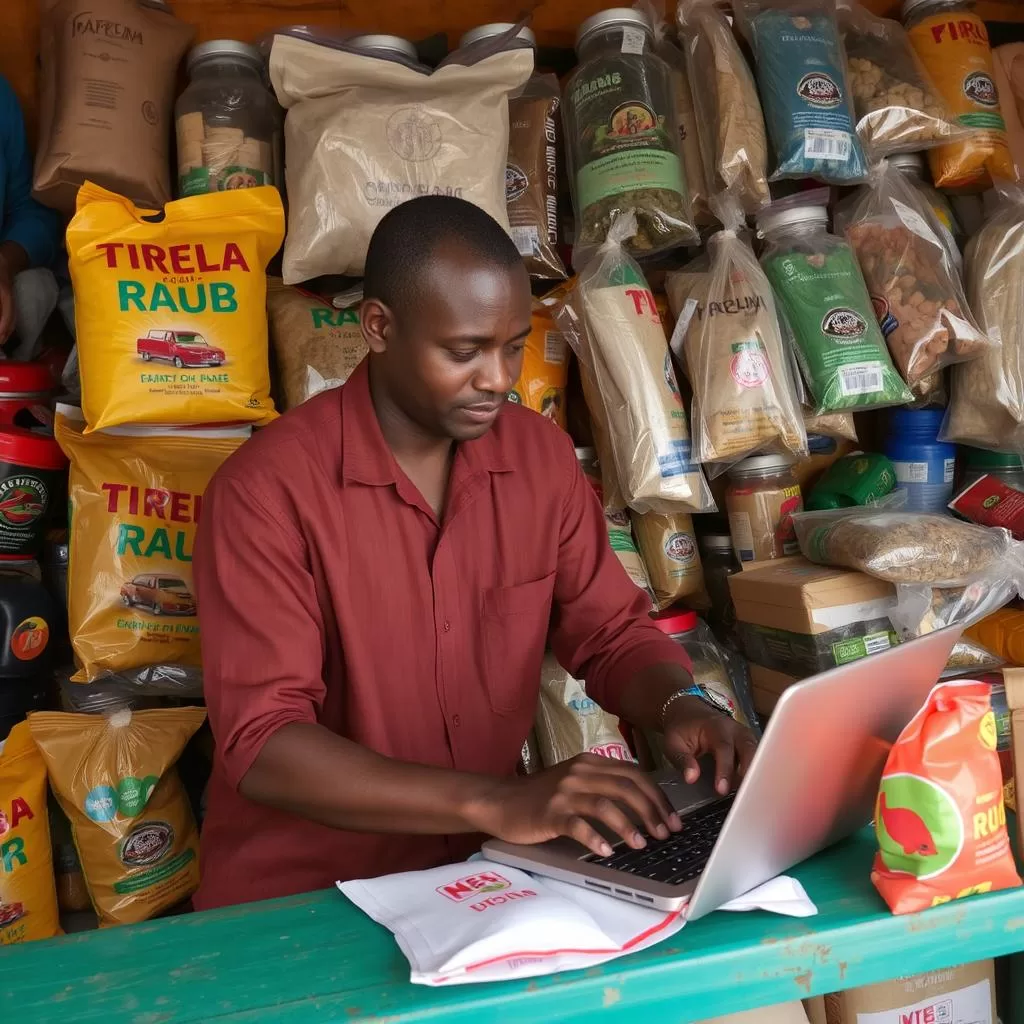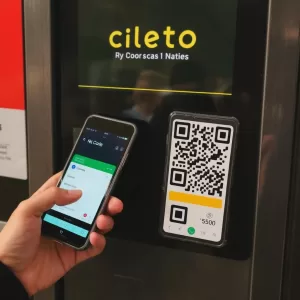E-Commerce in Africa: How Online Shopping is Transforming it
E-commerce is rapidly growing in Africa, reshaping the retail landscape and boosting digital payments. Furthermore, it is creating millions of jobs across various sectors. As internet penetration continues to increase and more Africans gain access to smartphones, online shopping is poised to become a $75 billion industry by 2025.
But what’s driving this e-commerce boom, and what challenges does it face?
What You’ll Learn in This Article:
- Challenges and the future of online retail: Explore the current challenges and what the future holds for online retail in Africa.
- Top e-commerce platforms: Learn about the leading platforms driving Africa’s online shopping revolution.
- Digital payments and logistics: Understand how improvements in digital payments and logistics are enhancing e-commerce.
Why E-Commerce is Booming in Africa
Several factors are driving the growth of e-commerce across the continent:
Improved Logistics & Delivery Services: Additionally, startups are addressing last-mile delivery challenges, improving e-commerce efficiency across the continent.
- Increased Internet & Smartphone Usage: With over 570 million Africans having internet access, a vast online consumer market is emerging.
- Mobile Money & Digital Payments: Mobile money services are playing a pivotal role in driving the growth of online shopping across Africa. As a result, they are making payments more accessible and convenient for a broader range of consumers.
- Growing Middle Class & Youth Population: As a result, more Africans now have disposable income, enabling them to shop online.
💡 For example, in Nigeria, South Africa, and Kenya, online shopping has grown by over 40% annually.
🔗 Related: How Digital Payments are changing the economy.
Top E-Commerce Platforms in Africa
Several Major Online Marketplaces Are Leading Africa’s E-Commerce Industry
Jumia (Pan-African)
- Largest E-Commerce Platform in Africa:
Jumia is the biggest online retailer on the continent, operating in 11 countries. It offers a wide range of products, from electronics and fashion to groceries. - Flexible Payment Options:
The platform supports various payment methods, including cash-on-delivery, mobile money, and card payments, making it accessible to a diverse range of customers.
Takealot (South Africa)
- South Africa’s Leading Online Retailer:
Takealot is the largest online store in South Africa, known for its fast delivery services. It offers a comprehensive selection of products such as electronics, fashion, home goods, and groceries. - Efficient Service and Wide Reach:
The platform’s ability to deliver quickly has made it a favorite among South African consumers seeking convenience and speed.
Kilimall (Kenya, Uganda, Nigeria)
- Growing Presence in East Africa:
Kilimall is becoming increasingly popular in East Africa, with operations in Kenya, Uganda, and Nigeria. - Affordable Products for the Region:
The platform focuses on offering affordable fashion, electronics, and home appliances, catering to a broad range of customers across these countries.
Konga (Nigeria)
Same-Day Delivery Services:
Notably, Konga offers same-day delivery in major cities, providing a significant advantage in terms of speed and convenience.
Key Competitor to Jumia in Nigeria:
Konga stands as a major competitor to Jumia in Nigeria, offering a wide array of products to Nigerian consumers.
💡 In fact, over 30% of Africans now prefer online shopping over traditional retail.
The Role of Digital Payments in E-Commerce Growth
Payment Solutions Driving E-Commerce Success in Africa
Mobile Money (M-Pesa, MTN MoMo, Airtel Money)
- The Most Popular Payment Method:
Mobile money services such as M-Pesa, MTN MoMo, and Airtel Money have become the preferred payment options for many African consumers. These services are particularly popular due to their accessibility and ease of use, especially in regions with limited banking infrastructure.
Payment Gateways (Flutterwave, Paystack, DPO Group)
- Enabling Secure Transactions:
Payment gateways like Flutterwave, Paystack, and DPO Group are crucial for enabling businesses to accept a wide range of payments, including credit cards, bank transfers, and even cryptocurrency. These platforms simplify the payment process, ensuring safe and seamless transactions for both merchants and customers.
Buy Now, Pay Later (BNPL) Services
Facilitating Credit-Based Purchases:
Startups like Lipa Later are revolutionizing online shopping by offering Buy Now, Pay Later (BNPL) services. This payment method allows customers to shop on credit and pay in installments, making it easier for people to afford products and boosting consumer spending.
💡 For example, in Kenya, 60% of online transactions are made through mobile money services.
Logistics & Last-Mile Delivery Challenges
Despite E-Commerce Growth, Delivery Logistics Remain a Challenge
- Addressing System Issues: Furthermore, many African cities lack structured street addresses, which complicates the delivery process. Without clear, standardized addressing systems, accurate and efficient deliveries are often delayed or misdirected.
- Poor Road Infrastructure: In many rural areas, inadequate transport networks make it difficult to ensure timely deliveries. This lack of infrastructure is a major hurdle for e-commerce growth in these regions.
- High Shipping Costs: Additionally, expensive logistics and shipping fees contribute to the high cost of online shopping. These costs can make e-commerce less affordable for many consumers, particularly in remote areas.
Solution: Startups like Sendy (Kenya), Kobo360 (Nigeria), and Pargo (South Africa) are improving last-mile delivery with AI-powered logistics.
💡 For example, SafeBoda (Uganda) now offers motorbike delivery for e-commerce orders, solving urban congestion issues.
Social Commerce & the Role of WhatsApp, Facebook, and Instagram
Social Commerce: A Rising Trend in African E-Commerce
Many African businesses are opting to sell products directly through social media platforms rather than relying on traditional websites. This growing trend is known as social commerce.
- TikTok & Influencer Marketing: TikTok is becoming a key platform for influencer marketing. Influencers use video promotions to drive sales, leveraging their large followings to reach potential buyers and increase brand awareness.
- WhatsApp Business: WhatsApp Business is increasingly being used by African businesses for customer orders, payments, and delivery tracking. Its convenience and widespread use make it an essential tool for connecting with customers directly.
- Facebook & Instagram Shops: On platforms like Facebook and Instagram, brands are creating virtual storefronts. By leveraging targeted advertising, businesses can reach specific customer segments, effectively driving online sales.
💡 For example, in Nigeria, over 35% of online sales happen through social media platforms instead of e-commerce websites.
Challenges Facing E-Commerce in Africa
Challenges Facing Online Retail in Africa Despite Rapid Growth
Despite the rapid growth of online retail in Africa, several challenges still hinder its full potential:
- Logistics & Delivery Issues:
As mentioned earlier, logistics and delivery challenges are still a major issue. Poor infrastructure and high shipping costs continue to complicate the online shopping experience. - Low Trust in Online Shopping:
Many African consumers are hesitant to shop online due to fears of scams and counterfeit products. This lack of trust can slow down the adoption of e-commerce across the continent. - Limited Digital Literacy:
Additionally, some individuals lack the knowledge or skills to shop online. Digital literacy is a significant barrier for those unfamiliar with navigating e-commerce platforms. - High Cost of Internet & Smartphones:
The high cost of internet access and smartphones remains a challenge, particularly in rural areas. This financial barrier slows the rate of adoption in certain regions.
💡 Solution: E-commerce companies are offering better customer support, return policies, and secure payment options to build trust.
The Future of E-Commerce in Africa
The Future of Online Shopping in Africa: Key Trends
The future of online shopping in Africa looks promising, driven by several key trends that are shaping the e-commerce landscape:
- Faster & Cheaper Deliveries:
Finally, innovations in delivery methods, such as drones and electric motorcycles, are set to revolutionize last-mile delivery. These technologies will make deliveries faster and more cost-effective, further boosting the convenience of online shopping. - More Local E-Commerce Startups:
New e-commerce marketplaces are emerging, which will challenge dominant players like Jumia. These startups will introduce innovative solutions tailored to the unique needs of African consumers. - Growth of AI-Powered Shopping Assistants:
In addition, AI-powered chatbots will play a significant role in improving the shopping experience. These virtual assistants will help users quickly find and purchase products, streamlining the overall process. - Expansion of Cross-Border E-Commerce:
Moreover, cross-border shopping will continue to grow, with more Africans purchasing goods from international platforms like Amazon and Alibaba. This will increase access to a wider variety of products and foster a more competitive market.
💡 For example, in Rwanda, Zipline drones are already delivering medical supplies and e-commerce packages.
Conclusion: E-Commerce is Africa’s Future
E-commerce is changing how Africans shop, pay, and do business. With the rise of digital payments, better logistics, and growing trust in online shopping, the industry is set to become a major economic driver.
Key Takeaways:
- Social Commerce is a Major Trend:
Social commerce, with platforms like WhatsApp and Instagram, is rapidly shaping the e-commerce landscape in Africa, allowing businesses to reach consumers directly. - Mobile Money is Fueling Growth:
Mobile money services are playing a pivotal role in driving the growth of online shopping across Africa, making payments more accessible. - Logistics and Trust Remain Key Challenges:
Despite the growth, issues such as unreliable logistics and low consumer trust still pose significant barriers to the widespread adoption of e-commerce.
Do you have an e-commerce project or want to set up an online shop? Check out e-commerce development services by Teknikali Tech.
💬 Do you think e-commerce will replace traditional markets in Africa? Share your thoughts in the comments!
Share this content:







Post Comment